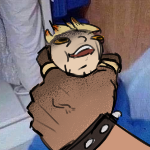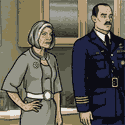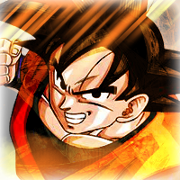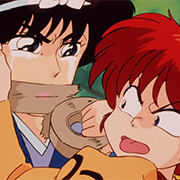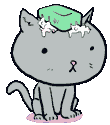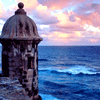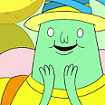|
z0331 posted:This is really interesting. I never knew there was such a connection between western playwrites and Noh. Not that I know much about Noh anyway... I'm afraid I haven't seen any live, though I'd love to one day if I ever go to Japan. My favourites (via translations that I know) are the Hagoromo, which is a very light story (focus on the dance) and Aya no Tsuzumi which is an awesome demon play. There are also plenty based of the Heike which inevitably end up with ghost samurai fights...Not without it's charm. Fenollosa is quite important, as he and a few others really inspired a lot of what western Modernism came to be. Japanese art and literature has in some cases followed a similar aesthetic to western Modernism since the Kamakura period. What is surprising is the amount of Japanese and/or Japanese literary aficionados writing in English in the early half of the 20th century. Their influence is astounding when taken together: Kakuzo Okakura, Count Kuki, R. H. Blyth, D.T. Suzuki, and of course Fenollosa.
|
|
|
|

|
| # ? May 24, 2024 08:32 |
|
Just quickly read an online print of Aya No Tsuzumi, and you're definitely right that it's far more like poetry than drama when written down. I thought the role of the chorus was interesting. I'm used to the western vision of the chorus that offers moral interpretations and acts as an observer. This chorus seemed to take on the perspective of different characters at different times, forming an image almost of an internal dialogue. Also, laughing at the name Count Kuki.
|
|
|
|
Poutling posted:I think Tanizaki's most fun work is The Secret History of the Lord of Musashi which I think vintage sells bundled with Arrowroot since they are both fairly short novellas. Anyone who likes Japanese historical novels should check this one out, it's so gory it's almost a horror novel, really fun stuff. Thanks for recommending this, I've just read and thoroughly enjoyed this. Secret History is really funny and satirical, and it's creepy but hardly splatterpunk. Arrowroot is a contemporary story about a couple of men going on holiday to search out some local history, and it's not very similar at all (although there is a severed head near the beginning!) It has the same themes of questioning and subverting history and binary opposition as the Secret History, so they go well together.
|
|
|
|
Chicken McNobody posted:Shusaku Endo is an interesting author, dealing mainly with themes of religion and of World War 2. I've only read When I Whistle so far, but I really want to read The Sea and Poison (about vivisections on American airmen in WW2, what a nice light read I'm sure it will be) and The Life of Jesus. I love The Sea and Poison. It was really fantastic, just like When I Whistle. I found his other works to be too Jesus-y for me, but those were great. I spent a month in Japan in May 2010 and the only English books at the Kinokuniya nearby were really bad airport reads or Japanese literature. I only dabbled a bit in Japanese literature before going, but I read a ton when I was there. It's more contemporary, but I read Beyond the Blossoming Fields by Junichi Watanabe and finished it pretty fast (which means I enjoyed it, haha). It's historical fiction based off of a true story of the first female doctor in Japan. I also read A Lost Paradise when I was like 13 or something by Jun'ichi Watanabe. Basically it's this really raunchy book about a couple who have a love affair. The end. Edit: Any recommendations for WWII-era literature from Japan? I've read a few books about the atomic bomb already I believe...I know I've read John Heresy's Hiroshima, and I wasn't sure if I should go and read Black Rain or not. I'm all about the war crimes. Shnooks fucked around with this message at 00:25 on Jan 28, 2011 |
|
|
|
Of Murakami I've read HardBoiled Wonderland, the sheep one, and the wind up bird chronicles, and I think the only one I would recommend are parts of The Wind up Bird for its strange synthesis of the hell of war and the strange absence of meaning and weird symbols in modern life - the cat coming back, descending into the well, all interesting set pieces that seem to flirt with meaning before retreating into, if not inscrutability, at least resist allegorical definition. Still not sold on him as a great artist. Mishima is my favorite, a hero of mine. There is a sublime moment in sun and steel when he is out running, and sees the blue sky, and realizes that everyone looking at the sky sees the same sky, that every eye there is intrinsically the same. Then people read his stuff and everybody says, this guy was different. Love his aesthetic philosophy, that true beauty is transitory but is translated into infinity at the moment of its destruction, that mutable flesh, when perfected, can marry the flower that wilts (the body) with the flower that lives forever (art). No author had a bigger philosophical impact on me in college, and once, when an idealized and beautiful girl looked at my thin weak body in scorn, seeing nothing but the physical trappings, I realized, hey, Mishima was right. This is bunkum. We can create an object of eternal beauty, too, though it is doomed to the ravages of temporality.
|
|
|
|
Which of Mishima's works do you prefer? It was a while ago, but I remember enjoying The Temple of the Golden Pavillion but I just haven't particularly enjoyed what I've read of the Sea of Fertility tetralogy. Spring Snow was ok, but Runaway Horses didn't click. I'm not sure whether or not it was because I felt absolutely no sympathy or connection with Isao. Still, he does strike me as one of the most interesting modern Japanese authors. From the sounds of it I should try to get my hands on some of his non-fiction as well. Also, of the two Murakamis, I vastly prefer Ryu even though I haven't read much. Coin-Locker Babies is one of my favorite novels. Ryu seems to be really good at perceiving and representing the pulsating animalism hidden underneath human civilization.
|
|
|
|
z0331 posted:Which of Mishima's works do you prefer? I don't think I've ever read anything by Ryu Murakami, though I have read a bit of Kenzaburo and Tanazaki and those type of guys. Mishima was far and away my favorite, maybe I will have to check out Coin Locker Babies soon. The Sea of Fertility, for me, is better at its ending, The Decay of the Angel, but I feel like maybe this might be entirely personal reasons, knowing that when he finished it he went to make his statement, which he had to know would be the end of his life, besides the somewhat lame political gesture. I'm not sure that it will be worth if for you, since if you had a hard time liking Runaway Horses I'm not sure how much you'll like the rest, because that is kind of the lost ideal that is trying to be recaptured throughout, but I would definitely definitely recommend Sun and Steel, then maybe The Sailor who Fell from Grace with the Sea, or maybe Forbidden Colors. Definitely Sun and Steel.
|
|
|
|
I've only read one book by each, but in my limited experience I would compare/contrast Kenzaburo and Ryu Murakami by saying that both, as I said before, see the barbarism/animalism underneath the veneer of culture, but Kenzaburo seems to have a much more optimistic outlook on it whereas Murakami's characters find closure through society's destruction. I've been meaning to read The Sailor Who Fell from Grace with the Sea but haven't gotten around to it. I'll probably try Sun and Steel though the publisher has managed to turn me off through the cover alone. 
|
|
|
|
Posting cause I've recently begun re-reading Sosek's Kokoro. I've read it twice before but this time I'm trying it in Japanese. It's actually not as hard as I expected, though slow going. Anyone who hasn't read this book - in any language - really should give it a try. I honestly think it's close to a perfect novel. Soseki is capable of using very direct, simple language to say so much. The other book I've been going through is called Kokuhaku. The title translates as Confession, though there's no English translation of the book yet. The basic story is about a junior high school teacher who's young daughter is killed accidentally by a pair of students in her class. I think it's one of many recent Japanese books that points to problems in Japanese society that are becoming reflected in kids. So far it's been pretty interesting.
|
|
|
|
Also, I found this list of recommended works in modern Japanese literature to be interesting. As the guy admits, in all 'canon' lists there's plenty of stuff missing, but it gave me plenty of new names to look up of authors I had never heard of. Even better, if you can read Japanese, around half the entries are up on Aozora Bunko (Japan's version of Gutenburg). Yes, I actually looked up each one to see if it was available for download.
|
|
|
|
z0331 posted:Also, I found this list of recommended works in modern Japanese literature to be interesting. This is great, thanks for posting! I love Japanese lit almost as much as I love Chinese lit, and it's nice to have the translators spelled out next to the Japanese (which I sadly cannot read). Edit: Wow, that prof isn't lying, some of these translations really are hard to find. Thankfully it seems the University of Michigan library has most of them. Foyes36 fucked around with this message at 04:15 on Mar 3, 2011 |
|
|
|
Glad you're finding the list useful. I think it really demonstrates how little Japanese literature, especially early modern stuff, has reached Western readers when translations are so hard to find. Once you get past the dozen or so big-name modern authors, availability becomes very limited.
|
|
|
|
z0331 posted:Posting cause I've recently begun re-reading Sosek's Kokoro. I've read it twice before but this time I'm trying it in Japanese. It's actually not as hard as I expected, though slow going. I have kokoro, but the only books I've tried reading (with an electronic dictionary to hand) are Murakami Haruki (Norwegian Wood and 1Q84 vol. 1) and I can't get anywhere fast. I saw Confessions in the cinema a week ago. The story seems alright but the film adaptation is definitely something I recommend you see when you're through with reading.
|
|
|
|
jet_dee posted:I have kokoro, but the only books I've tried reading (with an electronic dictionary to hand) are Murakami Haruki (Norwegian Wood and 1Q84 vol. 1) and I can't get anywhere fast. Obviously it's gonna depend a lot on your level of Japanese, but I would actually say that Soseki is slightly easier to read than Murakami, though some might disagree. I say that mostly because Murakami, while often using structure reminiscent of English, also uses a lot of figurative or otherwise odd language and imagery which can make it sort of tough to figure out what he's trying to say. Soseki, on the other hand, doesn't use a whole lot of imagery and, keeps things pretty straightforward. I would almost call him the Hemmingway of Japan in a certain sense. The hard part is that he also uses older kanji, words, or grammar that aren't as common nowadays which can throw you off.
|
|
|
|
I just finished watching Kwaidan, and now I feel like I have to read Heike Monogatari asap. Incidentally, are there any recommended primary sources of Japanese myths or ghost stories? I have Royall Tyler's translated collection (http://www.amazon.com/Japanese-Tales-Pantheon-folklore-library/dp/0375714510/ref=sr_1_6?ie=UTF8&qid=1299206760&sr=8-6, I LOVED his translation of Genji Monogatari), but I sort of like to read source material rather than collected anthologies if I can help it.
|
|
|
|
In terms of ghost stories, or Kaidan, I haven't read either of these, but from my quick searching I found two collections you could try: First there's the book Kwaidan that the movie was based on. It contains more stories than the movie does so it might be of interest. Second, there's the Ugetsu Monogatari, translated as Tales of Moonlight and Rain. These are apparently adapted from Chinese stories so they might be familiar to you already. As for mythology, if you feel up to it, the two huge ones are the Kokiji and the Nihon Shoki. These are basically the creation myths of Japan and how the culture began. Of the two, the Kokiji is more mythology while the Nihon Shoki is a bit more historically grounded. Sadly I haven't read these either. The only major translation of the Kojiki is from a long time ago so reads really stuffily. Plus practically every page is half footnotes which has scared me off for now. I figure since you're used to reading gigantic Chinese stories you might fare better. And finally, in terms of folklore, I'm not actually sure if there's a good anthology/full collection of various folk tales and stories. You might try looking at this page of major folk tales and seeing where they lead. You also might try stuff by Ryunosuke Akutagawa who wrote a lot of supernatural stories. Edit: You could try this collection of fairy talesalthough apparently she was pretty liberal in her translations. At least it's free. z0331 fucked around with this message at 05:30 on Mar 4, 2011 |
|
|
|
z0331 posted:Obviously it's gonna depend a lot on your level of Japanese, but I would actually say that Soseki is slightly easier to read than Murakami, though some might disagree. I'd agree with this. Murakami can be pretty hard to understand. All of my Japanese friends who have read Murakami have said the same thing. I just grabbed Kokoro from 青空文庫 and I'd actually say that it's pretty easy to read. I've mostly avoided older Japanese stuff because I open it up and see a ゑ or something and pretty much close it immediately, but I think I'm gonna go ahead and load a bunch of Natsume on my Kindle now. Thanks for the suggestion! edit: If anybody with a Kindle doesn't know, you can format Japanese stuff into a 縦書き PDF formatted for the Kindle screen at http://a2k.aill.org/. It even preserves furigana! Ara fucked around with this message at 02:42 on Mar 5, 2011 |
|
|
|
Wow, well then, the day I can finish a Murakami Haruki novel will be a day for celebration, I reckon! I originally set myself the goal of finishing 1Q84 volumes 1 and 2 before the English translations were released. That's happening as of October 2011 but I don't know that I could get anywhere close to finishing just the first volume by then.
|
|
|
|
jet_dee posted:Wow, well then, the day I can finish a Murakami Haruki novel will be a day for celebration, I reckon! Why don't you just start with Kaze no Uta wo Kike? It's short and it is almost impossible to find in English, although an English version exists. Plus 1Q84 has gotten pretty unenthusiastic reviews even from Murakami fans. Also, Kobo Abe seems to have mostly disappeared from popular consciousness (even many Japanese people I've spoken to have never heard of him) but if you like experimental stuff, I think he's great -- Woman in the Dunes, the Box Man, etc. There are English translations of pretty much everything he has ever written.
|
|
|
|
I've been reading a collection of short stories by Yasutaka Tsutsui called Salmonella Men on Planet Porno and Other Stories. I'm not completely through the book, but so far its been highly enjoyable. The first story is Inception-like, but with more sex and more too the point. There is another short story about how anti-smoking campaign has become a political issue more than anything. Eventually the anti-smoking people turn into lynch mobs. I think the best part was near the end when the narrator became the last smoker, a campaign to preserve him as an endangered species.
|
|
|
|
Sperg Victorious posted:Yasutaka Tsutsui I actually saw him on a TV show here in Japan a little while ago and they did a short segment on his work. Some of it, like Paprika, sounded really interesting. If you want Inception-like stories, that is probably even better since it's actually about entering dreams. Some of his stuff sounded kind of gimmicky, though. Like one book he wrote wherein he wouldn't use a certain letter/Japanese syllable each chapter. So like the first chapter he wrote without using the sound 'ge', and then the next chapter it would be without 'ge' and 'ha', etc. And then another book he basically tried to write in real time and then publish it unedited so there are actually a bunch of blank pages where he either zoned out or was doing something else. He's written a ton of stuff and continues to do so. On the show he claimed that he always tries to do something he's never done before. Still, Japanese sci-fi writers seem to be some of the most interesting. I've been on a Ryu Murakami kick recently. I bought the English version of Audition on my Kindle and so far it's a little 'meh'. I'm reading Piercing in Japanese also and it's by far more interesting. One of his major themes really seems to be how poor parenting can completely gently caress a person up.
|
|
|
|
I've read a few books by Tsutsui Yasutaka and I'm not sure what I think about them (there were a couple where I got to the end and thought, "What the hell?!"). I probably enjoyed the murder mystery ロートレック別荘事件 the most and had it not been for something I can't explain without spoiling the book I might have really liked it. Edit: He definitely seems to like writing books with weird conceits. mystes fucked around with this message at 15:06 on May 19, 2011 |
|
|
|
Huge Haruki Murakami fan. Amazing author, even in translation (which is such a loving rarity when it comes to English). Read most of his published novels/short stories in English, and a few essays in Japanese (not skilled enough for a novel yet). Jacked for IQ84. Thus: 1) Who else is jacked for IQ84? 2) What other authors (including the ones from OP) should I seriously consider if I like him?
|
|
|
|
It kinda depends on what you like him for. If you like stories about alienation and that have a sense of disconnection from the world than you might try Ryu Murakami although he's quite a bit darker. If you like the surrealism or sometimes magical realism, you might try Kobo Abe, although he can be tougher to get into.
|
|
|
|
I'm quite fond of Shusaku Endo. Deep River and Silence are two of my favorites. The Jesus stuff isn't quite as heavy-handed or off-putting in his books as in the other big Christian author, Ayako Oto, I believe, although I enjoyed her work, too. In high school I read and enjoyed the Eiji Yoshikawa historical novels: Taiko, Musashi, Shin Heike Monogatari. The Signore by Kunio Tsuji is a pretty interesting book about Oda Nobunaga. Fires on the Plain is one of the more interesting war novels I've read. The Harp of Burma is also pretty good, and not too difficult to read in Japanese. I don't know if there's an English translation of it, but I really enjoyed Miyazawa Kenji's Ginga Tetsudo no Yoru. I like Natsuo Kirino, too, the previously mentioned Out, and Grotesque is good as well.
|
|
|
|
ppl2ch4mp posted:Huge Haruki Murakami fan. Amazing author, even in translation (which is such a loving rarity when it comes to English). Read most of his published novels/short stories in English, and a few essays in Japanese (not skilled enough for a novel yet). Jacked for IQ84. I got into Kenzaburo Oe after Murakami, and it seemed like a pretty natural leap to me. Don't get turned off by the grim subject matter. A Personal Matter is a really nuanced, tightly constructed book.
|
|
|
|
I've said it before in this thread but yes A Personal Matter by Oe is a really beautiful book that's worth a shot
|
|
|
|
z0331 posted:I actually saw him on a TV show here in Japan a little while ago and they did a short segment on his work. Some of it, like Paprika, sounded really interesting. If you want Inception-like stories, that is probably even better since it's actually about entering dreams. I am a prolific reader and it is very rare I do not finish a book but Paprika was one of them. One of the worst novels I read, or attempted to, last year. The main character is just some cliched fantasy woman and the awkward dialogue made my whole body cringe. Just awful.
|
|
|
|
Just finished Shintaro Kago's short story Suck It. It's an interesting piece written in the form of a diary. The story is about hedonistic, post-war Japanese society, adrift in moral relativity, in the grip of late stage western democracy. Seen through the eyes of a young man, it plots the nihilistic decay that modern liberalism engenders.
|
|
|
|
I'm finally back in school and have been taking an East Asian Novel course with a professor who is Japanese so the course material is almost all Japanese novels. So far we've read 3 books and they're all ones I've read before - Soseki's Kokoro, Mishima's Temple of the Golden Pavilion, and Abe's Woman in the Dunes - but it's been a lot of fun going through them again in an academic environment since you can get so much more out of them. I've also finished up Kokoro again in the original Japanese and am working through Woman in the Dunes in Japanese also though it's been tough going. I'm planning on focusing a lot of my efforts on Abe Kobo. I just love his work so much. Woman in the Dunes is a fantastic existential novel but one that actually can be read as relatively optimistic. I'm also working through The Ark Sakura on the side which is pretty interesting. I really need to re-read The Box Man since I think there's a lot of interesting things that can be read into it regarding the use of observation/looking (ala Foucault's Panopticon, etc.) Edit: Forgot to mention that the next book we've just started is Murakami's A Wild Sheep Chase which is the first book on the list I haven't read. It's been a long time since I've read any Haruki Murakami so I'm looking forward to getting into it. I got kind of turned off of him after reading a bunch of his short stories. With a few exceptions they just generally left me with a feeling of 'ok, so what?' From what I've read his novels just tend to have more to them.
|
|
|
|
Everybody's most or least favorite Japanese author is getting some big talk right now regarding the Nobel in Lit: http://www.mediabistro.com/galleycat/haruki-murakami-gets-81-odds-of-winning-nobel-prize-for-literature_b39232
|
|
|
|
Pfirti86 posted:Everybody's most or least favorite Japanese author is getting some big talk right now regarding the Nobel in Lit:
|
|
|
|
mystes posted:I'm pretty sure his fans have been saying he's going to win each time for at least 20 years. It doesn't mean anything. I don't really see a reason why he should win. The only thing he's been able to do better than other prolific Japanese writers in the past is be more commercially successful.
|
|
|
|
Mmm, having read the English translations of Norwegian Wood, Kafka On The Shore, After Dark, and a tiny bit of The Wind-Up Bird Chronicle, I felt that Norwegian Wood was the only one I liked. I'm slowly crawling through the original Japanese 1Q84 and hoping that I like it as much as Norwegian Wood.
|
|
|
|
NeilPerry posted:I don't really see a reason why he should win. The only thing he's been able to do better than other prolific Japanese writers in the past is be more commercially successful.
|
|
|
|
If they passed up Abe Kobo for so many years until it was too late there's no reason they should choose Murakami.  Not that I'm biased or anything...
|
|
|
|
Haven't seen any posts about Izumi Kyoka, who is one of my favorite Japanese writers. His autobiography alone is absolutely fascinating as he was a writer within the Meiji Period attempting to write within traditional Edo-period style while all of his contemporaries were moving on to realism/naturalism. As a result, his prose is heavily romantic and vivid and abounds with Gothic imagery of the strange and sexual that pre-Meiji Japan valued so highly. This is also likely why Kyoka is not often recognized as he he was often shunned by critics and contemporaries of his time for not pursuing Western-style writing. He only wrote a single novel (which was pretty awful) and few plays which had very limited success until the 1970s but his short stories are absolutely beautiful and often extremely dark. It's important to note that his stories all follow a pretty set theme and thus can tend to blend together, but I've found few writers who capture the sense of Japanese liminality through natural imagery as well a Kyoka does. The Holy Man of Mount Koya is probably his most famous work, it concerns the travels of a young monk led astray into the wild and his interactions with a strange woman who fulfills the role of both savior and seductress (There's a wonderfully apocalyptic passage in this story about leeches that begs being read). The Surgery Room is an extremely short vignette which addresses growing focus on class difference in Japan during the Meiji Restoration and how it defiles the sublime nature of love. One Day in Spring is a longer story which focuses on the discovery of occult practices in the countryside and the interaction of death and the erotic. This particular story is particularly interesting for its focus on traditional Japanese symbolic imagery involving the ocean and black & white life/death imagery. Equally compelling as Kyoka's stories is his biography which features a litany of suicide, neuroticism and the importance of language as a salvational force. If you can dig up The Similitude of Blossoms: Critical Biography of Izumi Kyoka (1873-1939), Japanese Novelist and Playwright I highly suggest reading it, this guy's life was about as crazy as his stories indicate and it's a highly entertaining read.
|
|
|
|
jet_dee posted:Mmm, having read the English translations of Norwegian Wood, Kafka On The Shore, After Dark, and a tiny bit of The Wind-Up Bird Chronicle, I felt that Norwegian Wood was the only one I liked. I'm slowly crawling through the original Japanese 1Q84 and hoping that I like it as much as Norwegian Wood.  ). It's actually not too bad because the Hard-Boiled chapters have that sort of brief, Hemingway-ish style that I can tell has a rhythm to it even though I can't necessarily understand all the parts of a sentence, and the End of the World sequences are more descriptive, so I learn more juicy adjectives. I guess it's kind of a weird approach, but it's more fun for me than flash cards soooo... ). It's actually not too bad because the Hard-Boiled chapters have that sort of brief, Hemingway-ish style that I can tell has a rhythm to it even though I can't necessarily understand all the parts of a sentence, and the End of the World sequences are more descriptive, so I learn more juicy adjectives. I guess it's kind of a weird approach, but it's more fun for me than flash cards soooo...I posted this in the Japanese language and tourism megathreads, but they didn't seem to know, so I'll try here: Does anyone know how the audiobook scene is in Japan? I would love the Japanese audio for HBW to accompany the text, but I have had zero luck since I only know what to Google for in English.
|
|
|
|
Automatic Jack posted:
Audiobooks are not very popular over there and, as far as I know, there are no audiobook versions of Murakami's stuff.
|
|
|
|

|
| # ? May 24, 2024 08:32 |
|
Oh hey this thread. I started reading Akira Higashiyama's "Johnny the Rabbit", a sort of crime noir novel involving a rabbit protagonist and other animals. I didn't get very far, because it was only somewhat interesting. I'm reading it in Chinese (title is 兔子强尼 - picked it up at a book sale randomly) but I imagine the content is about the same. The book doesn't seem to be known by the anglo-Internet, and the author doesn't even have a Wikipedia page. Hmm.
|
|
|





